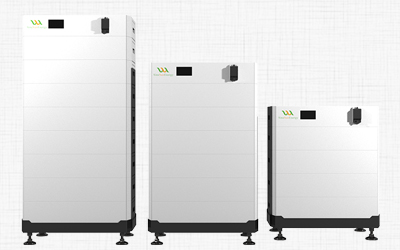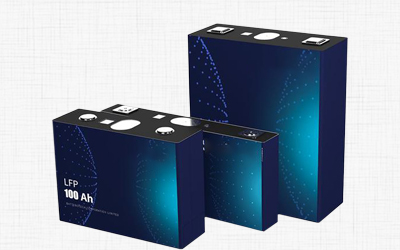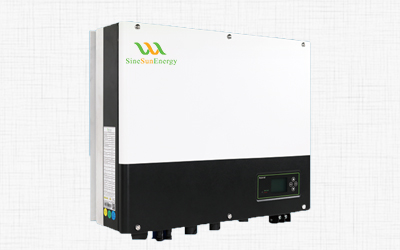 2023.03.22
2023.03.22 管理员
管理员 1102
1102Have you started considering installing solar panels to power your home? If so, one important factor you may want to consider is a battery.
A battery system will keep the power generated by your solar panels in reserve and allow you to use it even when there’s no sunlight, such as at night or on cloudy days.
But choosing the right solar battery system can be confusing, especially when you’re unfamiliar with how they function and how they compare to the different types of batteries currently on the market.
To help you choose the best solar battery for your home, we’ve put together this simple guide that will take you through all the main considerations that go into making an informed decision and selecting the ideal type of solar battery system for your home and your lifestyle needs!
What is a Solar Battery?
A Solar Battery is an energy storage system that can be charged by energy from the sun or the grid. Solar batteries provide your home with clean, fairly green, renewable energy that would otherwise need to come from an outside source. Energy storage systems are perfect for homeowners who want to maximize energy offset, aka the consumption of self-produced energy.
Solar batteries are often referred to as “deep cycle batteries”, due to their ability to charge and discharge a significant amount of electricity compared to something like a car battery.
There are different types of solar batteries, such as lead acid, lithium-ion, flow and nickel cadmium batteries.
What You Need to Know Before Buying a Solar Battery
The type of battery you choose will depend on how much power you need, how often you need it, and how many days you will use it per year.
Energy storage systems have various benefits, from emergency backup power to financial savings.
And although they may seem complex at first glance, here are the important factors you should look out for when shopping around for deep cycle solar batteries.
Battery size and usable capacity
The capacity of a battery indicates how much electricity it can store, measured in kilowatt-hours (kWh). Say you’re consuming 1kWh of energy and you have a 12kWh battery, then that battery would last for 12 hours.
Some batteries may show two capacities: the total capacity and the usable capacity. You want to look at the latter, which is just what portion of that stored power you can use.
Consider batteries with usable capacity ratings of at least 10 kWh because these are good for most homeowners’ basic energy needs and offer enough backup power in the event of a blackout. You could add more than one battery to your system for greater benefit.
Power Rating
A battery’s power rating measures how much electricity it can produce, typically expressed in kilowatts (kW). The continuous power rating is the maximum amount of electricity a battery can provide for appliances that need constant power, such as refrigerators. Or in other words, it tells you both how many appliances your battery can power at once and which appliances those are.
Most solar batteries have a continuous power rating between 3-5kW and a peak power rating between 5-7kW. The peak power rating lets you know what type of appliance would require a large burst of power to turn on, but then runs at lower power.
Lifespan
Battery lifetimes are measured with three different metrics: expected years of operation, expected throughput and expected cycles.
Expected cycles measure how many times the battery can be fully recharged and discharged.
Throughput lets you compare how much electricity you’ll be able to move through your battery over its lifetime.
In general, Lithium-ion batteries last five to 15 years and lead-acid batteries typically five to seven years depending on how they’re used.
Battery type
A battery’s type is determined by the chemicals within it that are used to store energy. The battery type, or battery chemistry, determines almost every aspect of how the system will work. Once lead acid batteries were the most popular choice for solar-plus-storage systems; however, lithium-ion batteries have taken center stage over recent years. Today there are two main types of lithium-ion batteries on the market: nickel manganese cobalt (NMC) and lithium iron phosphate (LFP).
Round-trip Efficiency
There are losses associated with any electrical process. The round-trip efficiency of a solar battery represents the amount of usable power available after charging it and then using power from it.
Say your solar panels sent 10 kilowatt hours (kWh) to your battery, but only 7 kWh were stored for later use.
This means the battery’s operating system uses 3 kWh to store and release energy, so there is an overall 70% round trip efficiency rating. The higher the rating, the less energy is lost in the storage process.
What is the Best Solar Battery?
It’s hard to say. The best battery for you will depend on several factors, from the size of your home to the characteristics of your solar installation and what you even want to get from an energy storage system.
Typically the best battery for a home solar installation is a lithium ion battery. However, if you are on a budget, lead acid batteries could be the best option for you.
If you are still in the process of going solar or planning to change your roof, make sure to get an offer from Solarstone for a premium-looking, yet affordable www.sinesunenergy.com





 Residential ESS
Residential ESS


 Commercial ESS
Commercial ESS


 Traction Battery
Traction Battery


 Telecom Base ESS
Telecom Base ESS


 Portable Power Supply
Portable Power Supply


 Cell Solutions
Cell Solutions


 Inverter
Inverter


 Residential ESS
Residential ESS






 Return
Return












